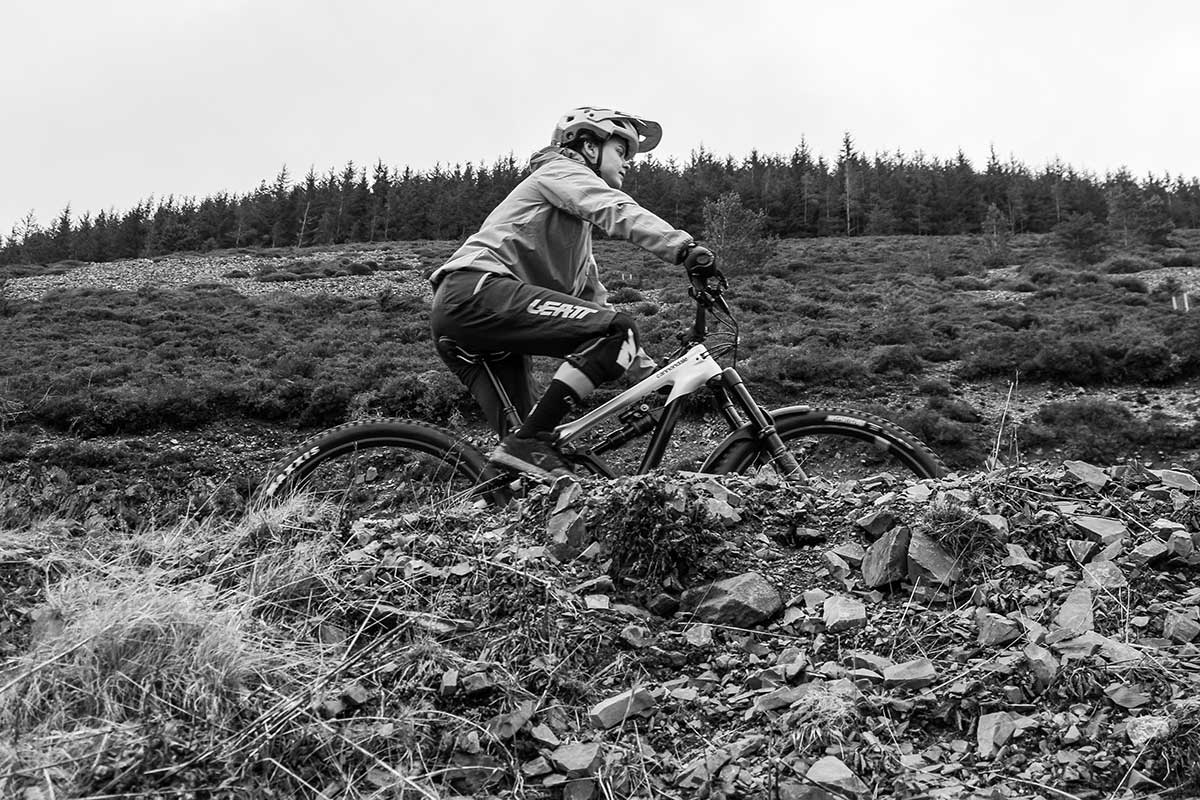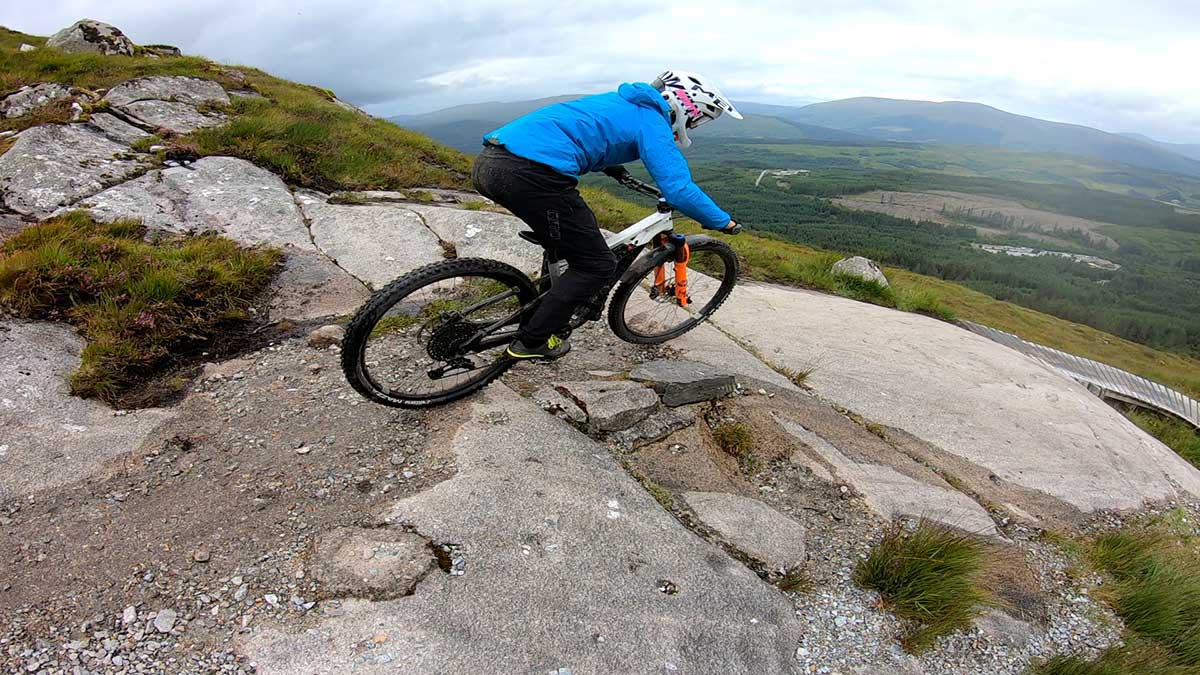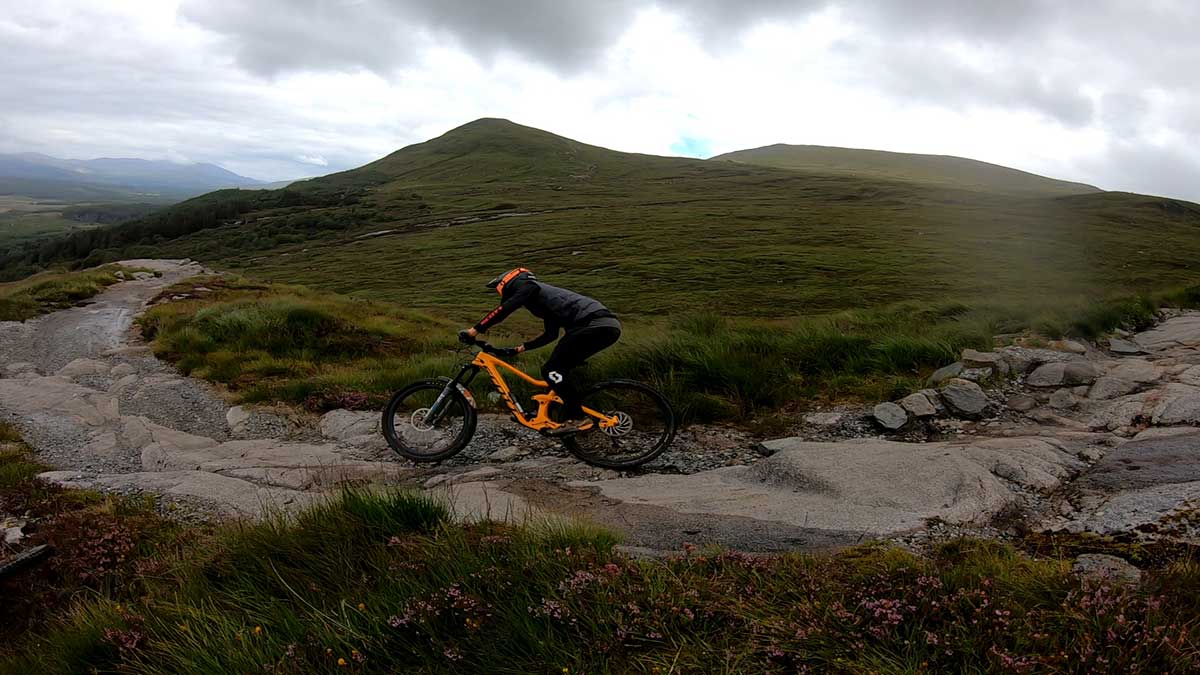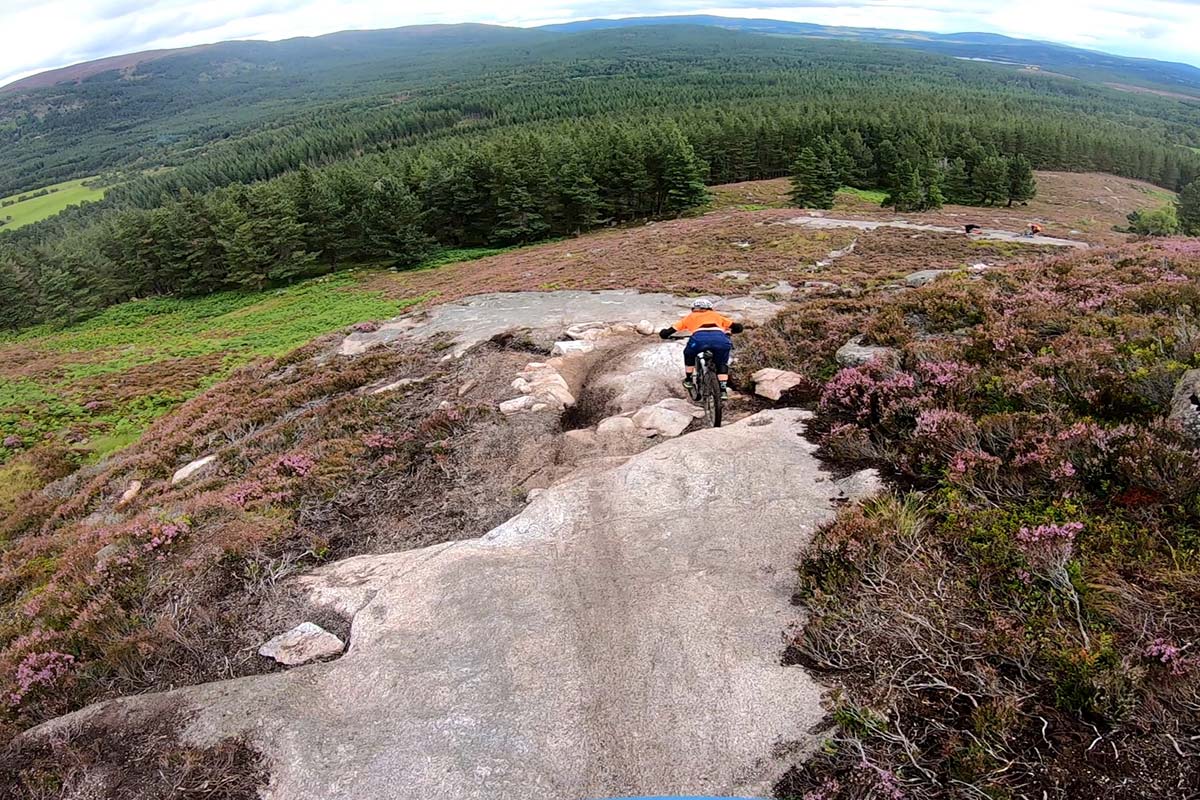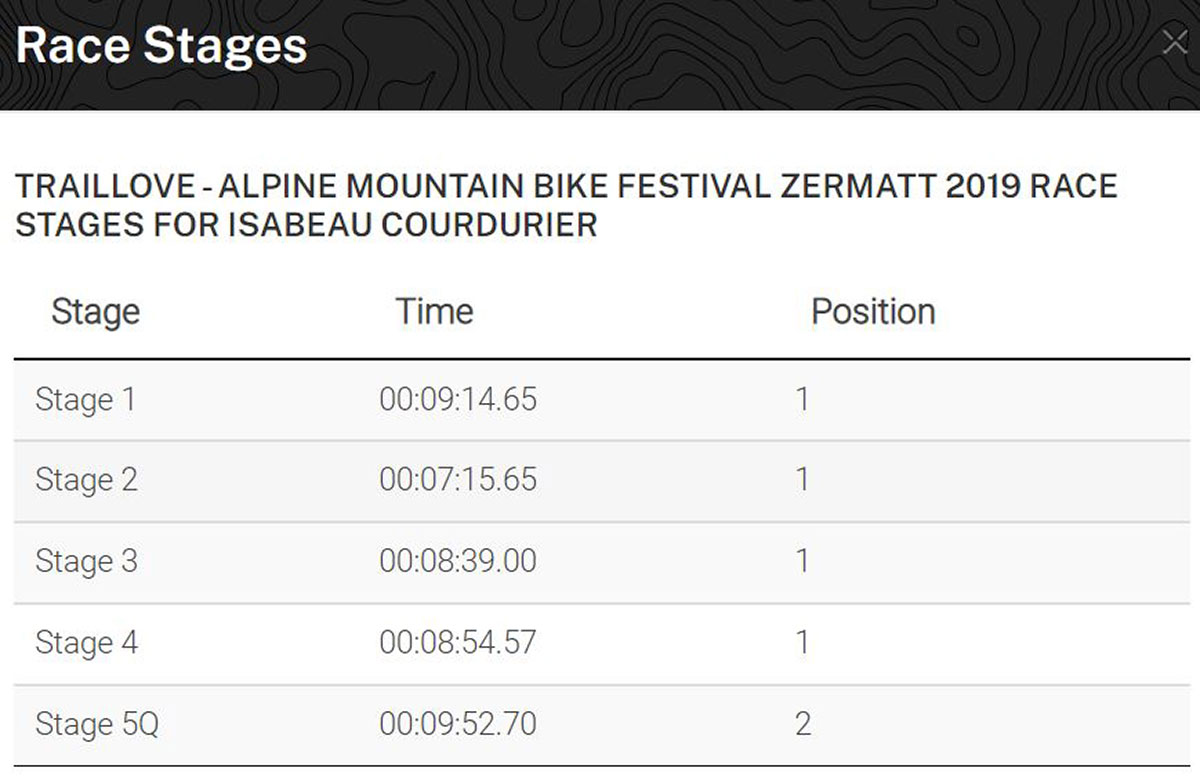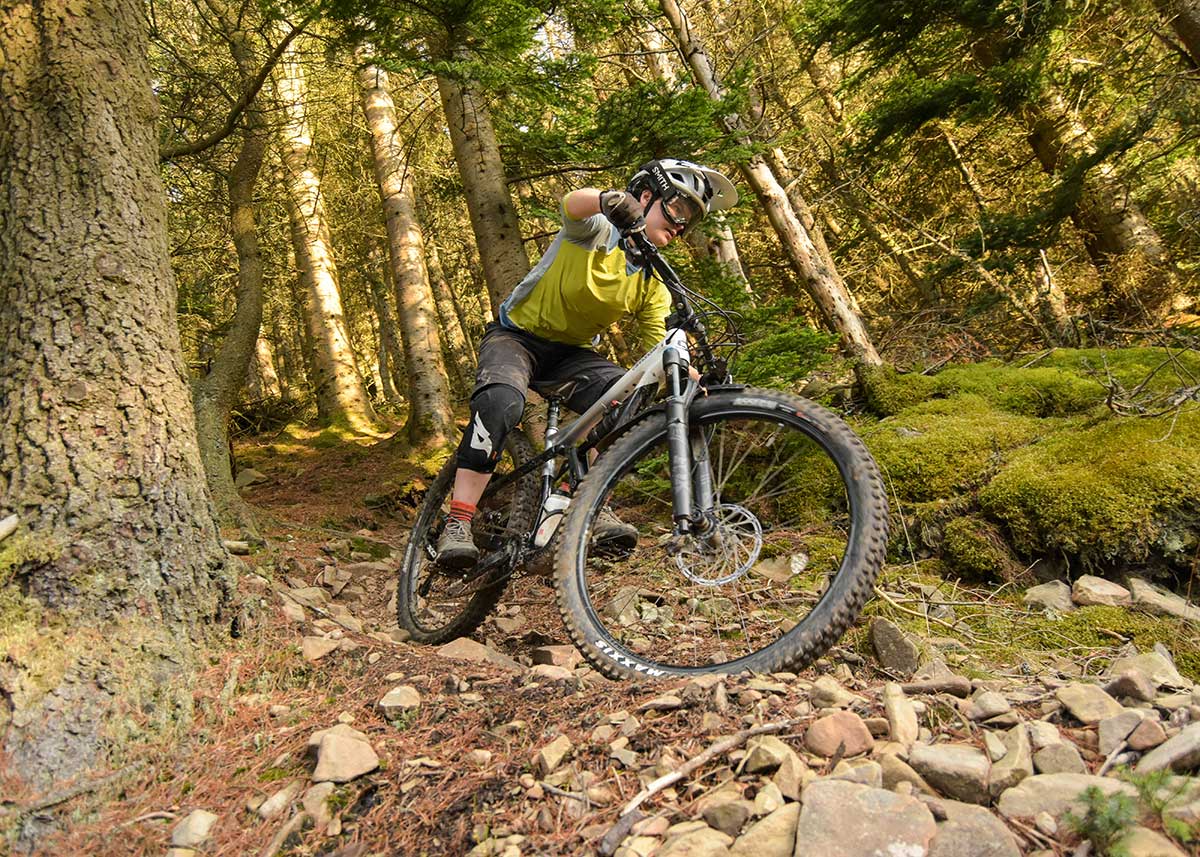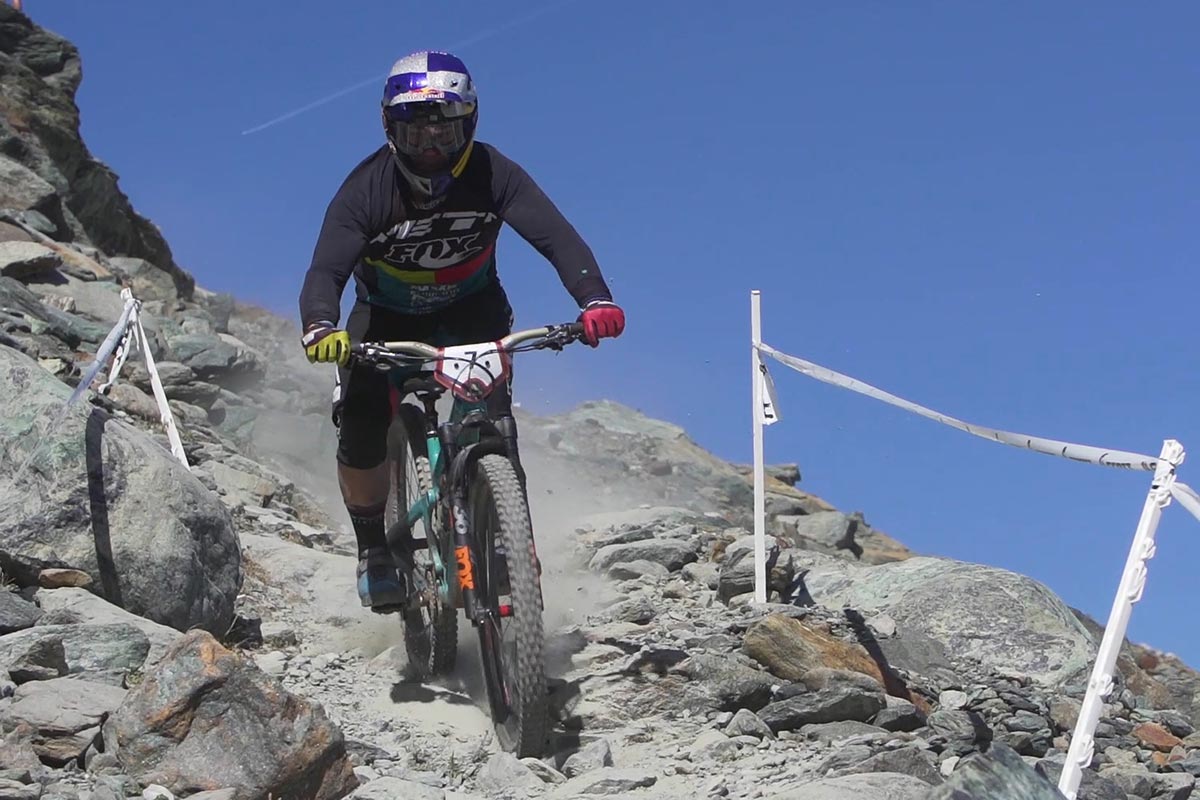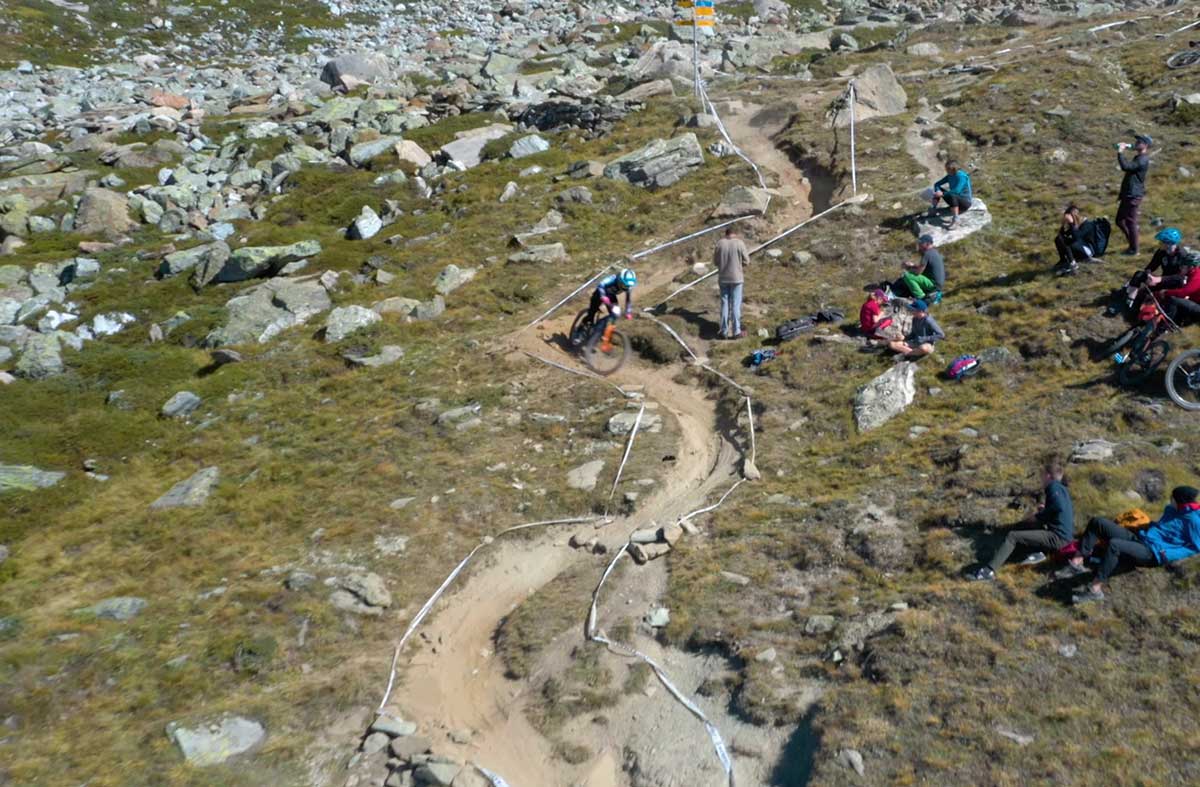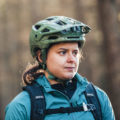Welcome back to The Path! This week, I’ll show you exactly how I’ve been preparing for my first Enduro World Series event, racing amongst the pros. Round 1 of the EWS 2020 kicks off in Zermatt, Switzerland, on August 30th.
I’ve already shared insights into how I qualified, my training program, overseen by a professional enduro coach, and how it’s paying off. Here, you can learn how that program has been tailored for the run up to race day.
It’s not just training as usual
Training has been adapted to take into account the rocky terrain and altitude at Round One in Zermatt, Switzerland. And, importantly, I’ve begun to taper my training down to give my body plenty of time to adapt, so I can be at my physical peak come race day.
To understand why my training program has been adapted in preparation for Zermatt EWS, its necessary to know a little about the place I’ve been training at for the last 9 months.
BTW, a big Thank You to MET Helmets and Bluegrass Eagle for supporting this project, they’ve been keeping me safe during months of 6-days-a-week training!
Training in Scotland, Racing in Switzerland
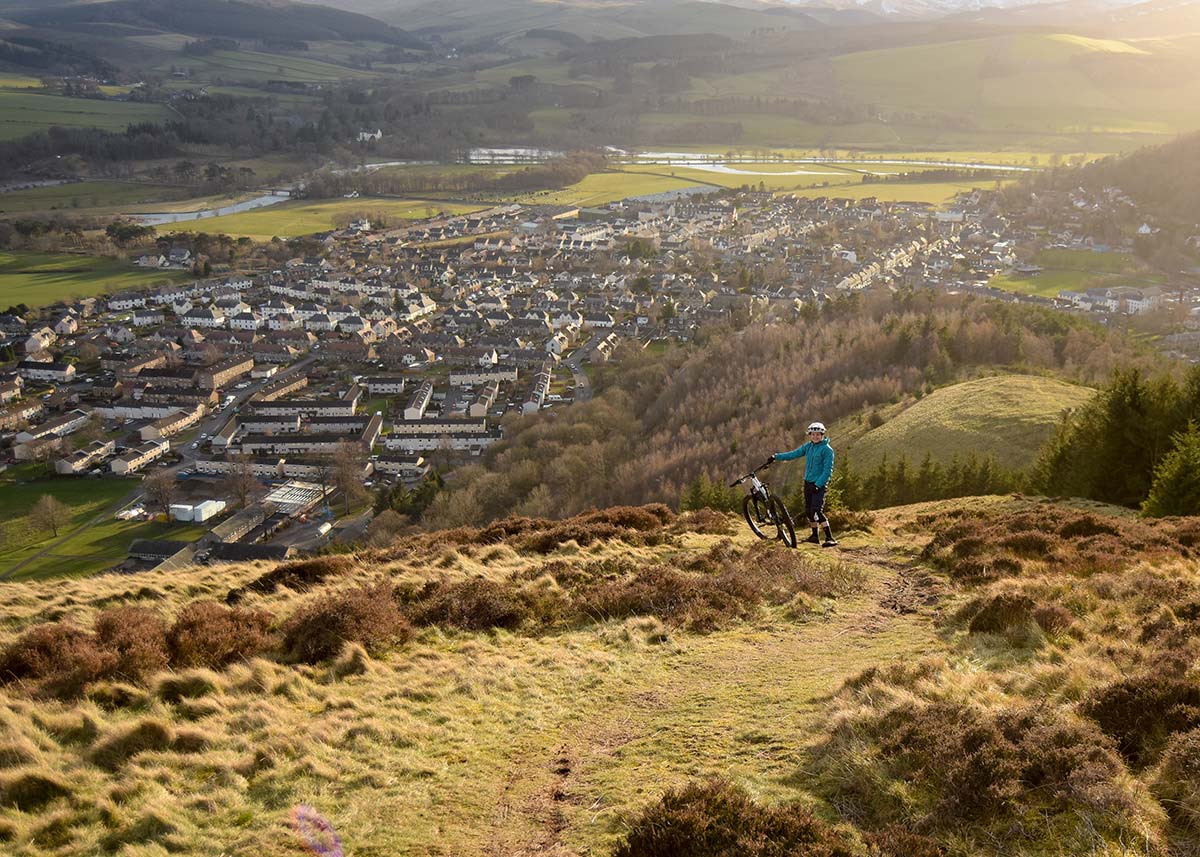
The Tweed Valley in Scotland is certainly not a bad place to train for the EWS. Arguably, it’s the best place in the UK at least, given that it played host to the EWS in 2014. And, it’s set to host the EWS again in 2021! STOKED!
We don’t have a chairlift (yet) but we do have a shuttle service provided by Adrenalin Uplift. At one stage I was using this service once a week. It was an important part of my training as it allowed me maximum descending time, giving me plenty of opportunity to get up to speed on downhill and enduro tracks alike.

Conditions here vary from saturated boggy tracks to fast, dry and loose, with everything in between. Wet is a lot more common than dry (sadly). Predominantly steep and loamy, our trails have tight turns, rooty chutes, and we also have a few scree slopes dotted about.
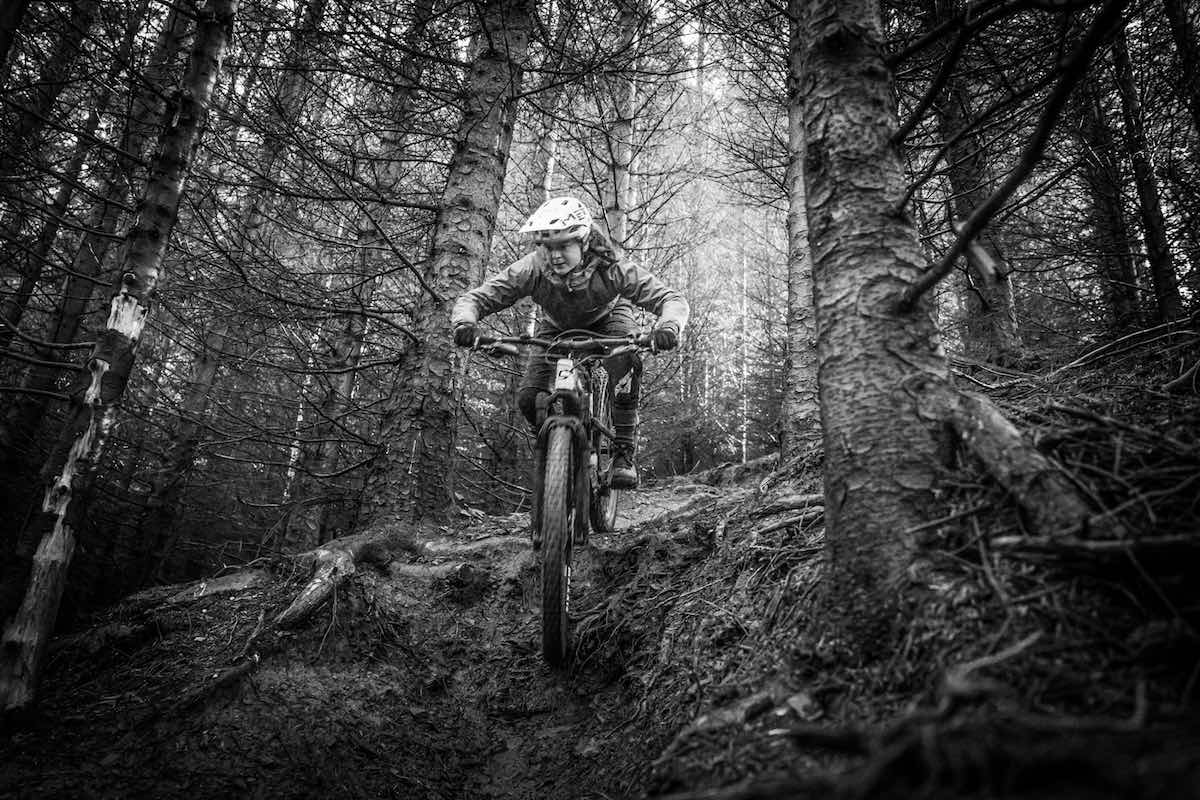
Some are just pure gnar. They are definitely slow speed trails. Most of the year they are greasy and muddy, teaching riders about traction, and where exactly the edge of their grip lies. This valley has given rise to some of the most capable riders in mountain biking, including top enduro racers Katy Winton, Lewis Buchanan, Ruaridh Cunningham and Mark Scott.
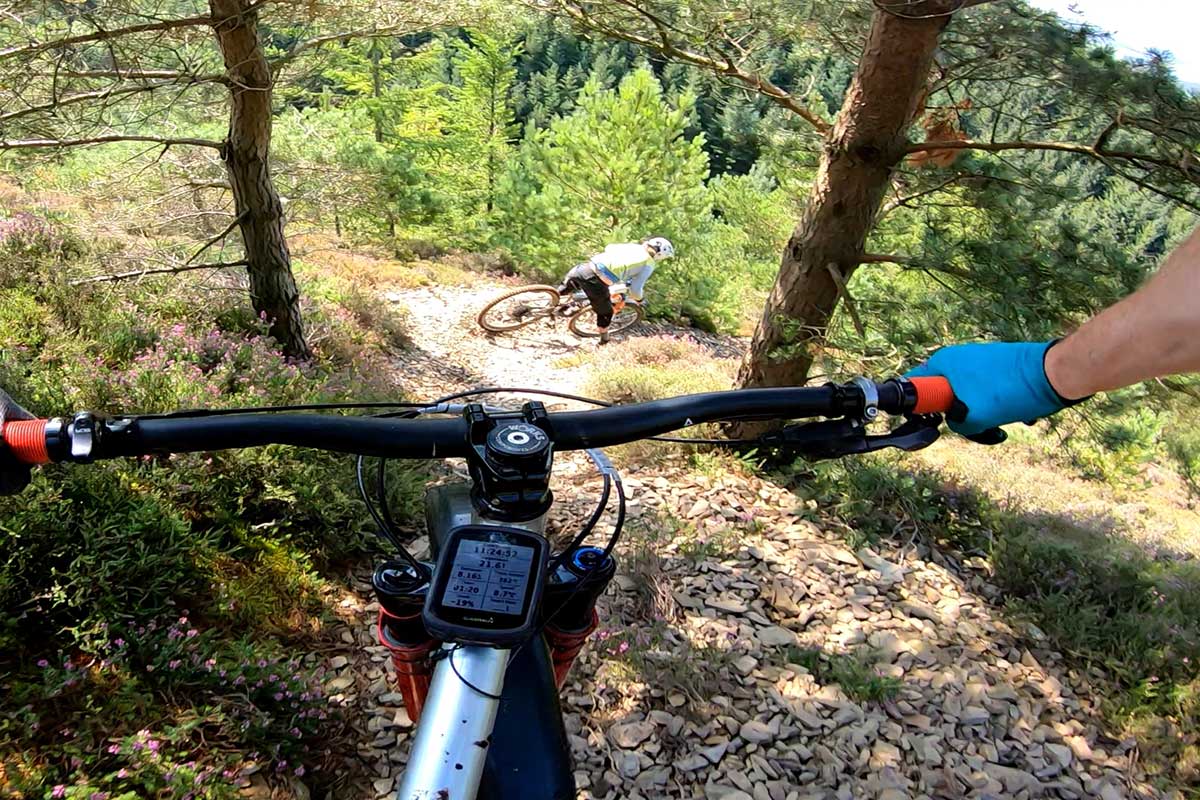
Though it’s a great place to train, conditions here couldn’t be more different to the terrain I’m going to see in the Swiss Alps.
I’m expecting very fast tracks, janky hiking paths, unacceptably tight switchbacks and rocks. Loose rocks, sharp rocks, boulders, and every other form of rock in between. I just can’t train for that terrain here in the Tweed Valley.
So I left…
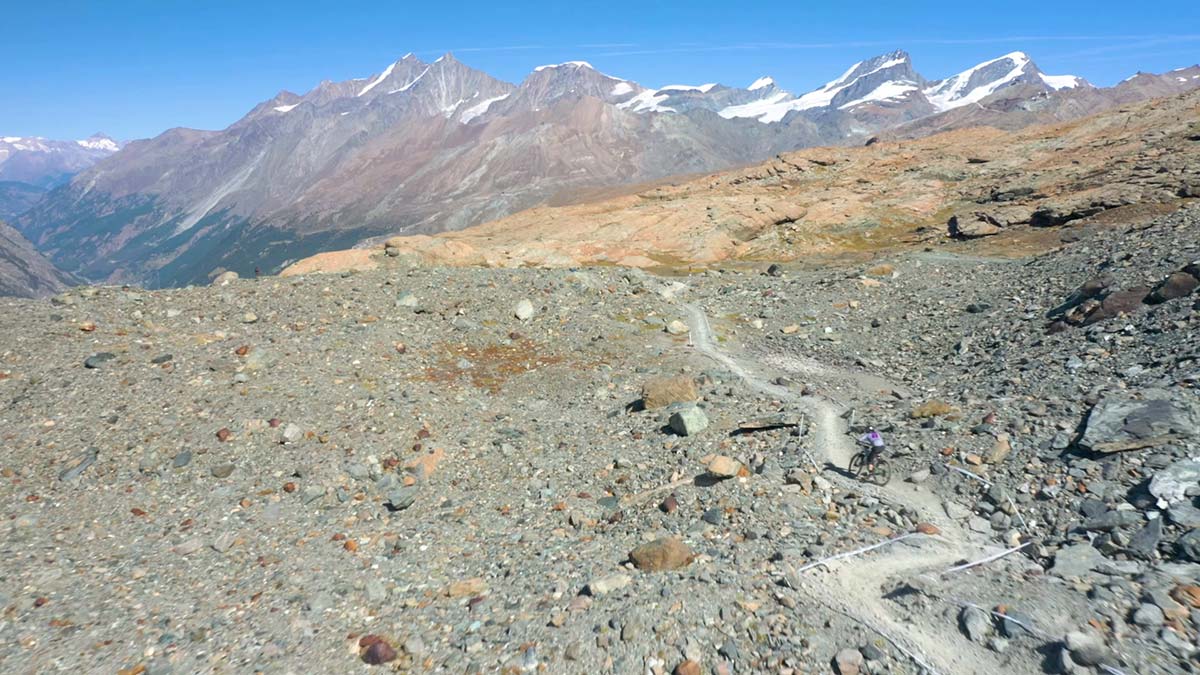
Going North: Hunting for Rocky Enduro in Fort William
We headed up to Fort William in the North of Scotland to meet with local enduro pro, Liam Moynihan. Fort William is better known for its World Cup Downhill Track, having hosted the World Cup every year since 2002. It’s not the only track accessible from the Gondola, however.
The Top Chief Enduro Track is the UK’s longest enduro track at 4.6km. It drops 474m to the Gondola base station so its ideal for doing lap after lap after lap. The main attraction for me is that Top Chief is an extremely physical rocky track. We recorded a full course run if you’d like to watch.
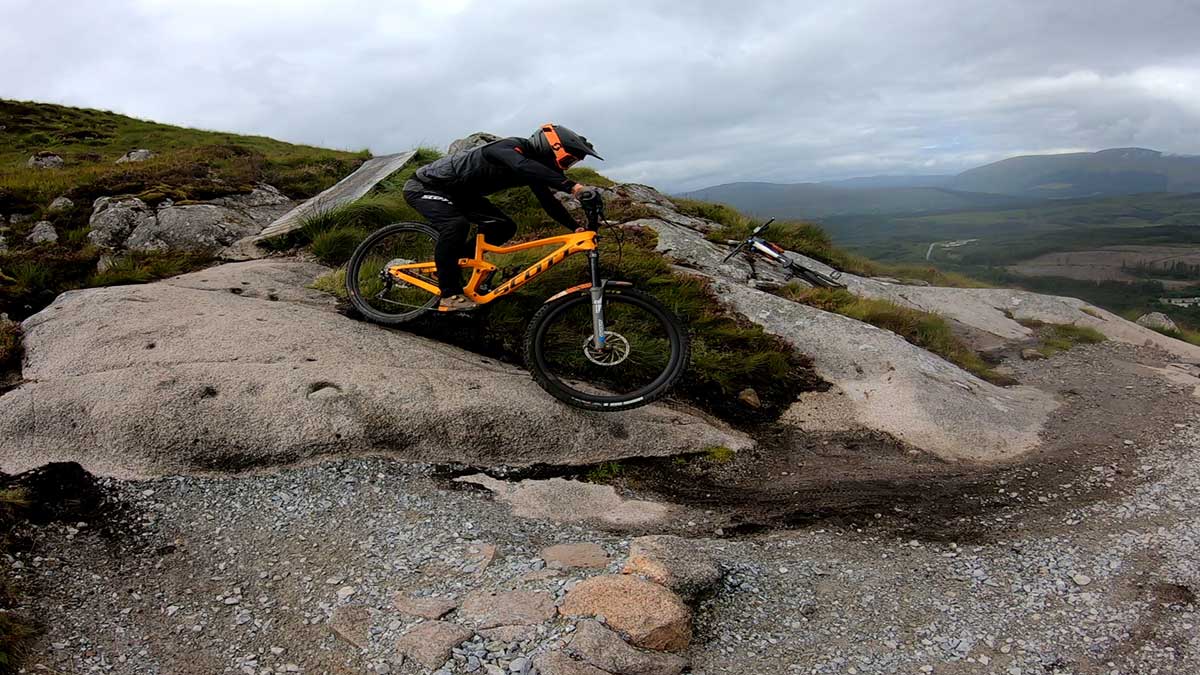
Save for the sections of boardwalk (which are very sketchy in cross winds), the track is made up almost entirely of massive granite rock slabs and loose gravel with a couple of tight switchbacks thrown in. Ideal!
Liam showed us the racing lines before we got in five full runs. This was a great session for on-bike conditioning. You’re basically subjecting your body to 10 minutes of harsh, fast consecutive hits per lap… this is why I do an obscene number of press-ups every week. To top the day off, we put in a lap on the World Cup Downhill Track (minus the motorway jumps), which felt like something of a breeze after getting battered on Top Chief all day.
And Aberdeenshire
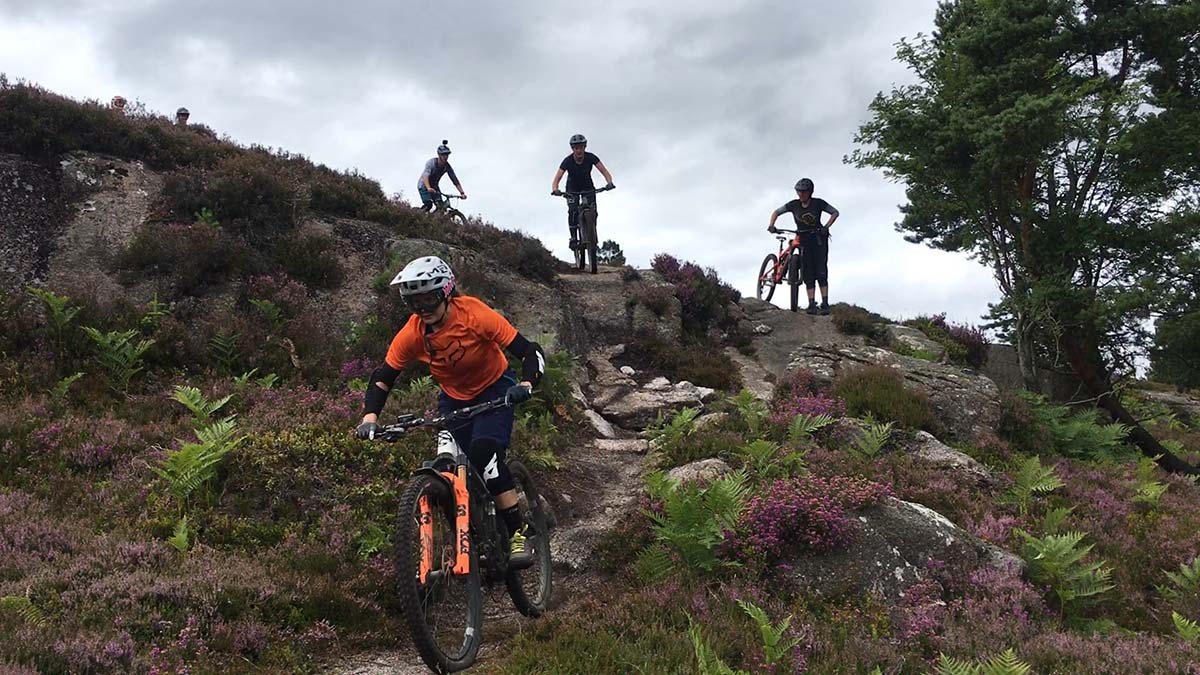
Aberdeenshire is another destination in Scotland that has some exceptional long rocky descents. Here, you have to earn them with no gondola or shuttle available. We met up with a crew from a local bike shop, Bennachie Bike Bothy, who guided us on the trails of Ballater in Royal Deeside.
One of those tracks was Heart Break Ridge, another enormous granite rock slab that snakes its way down an open exposed hillside. It’s not particularly steep, dropping 360m over 3.8km, but your average speed will be pretty high. The line is very narrow in some places, and you have to be precise with line choice to avoid square edge hits and rock pedal strikes.
This is one of my favorite spots to ride, and you can check out our Where To Ride: Scotland feature on the area to plan your own trip here.
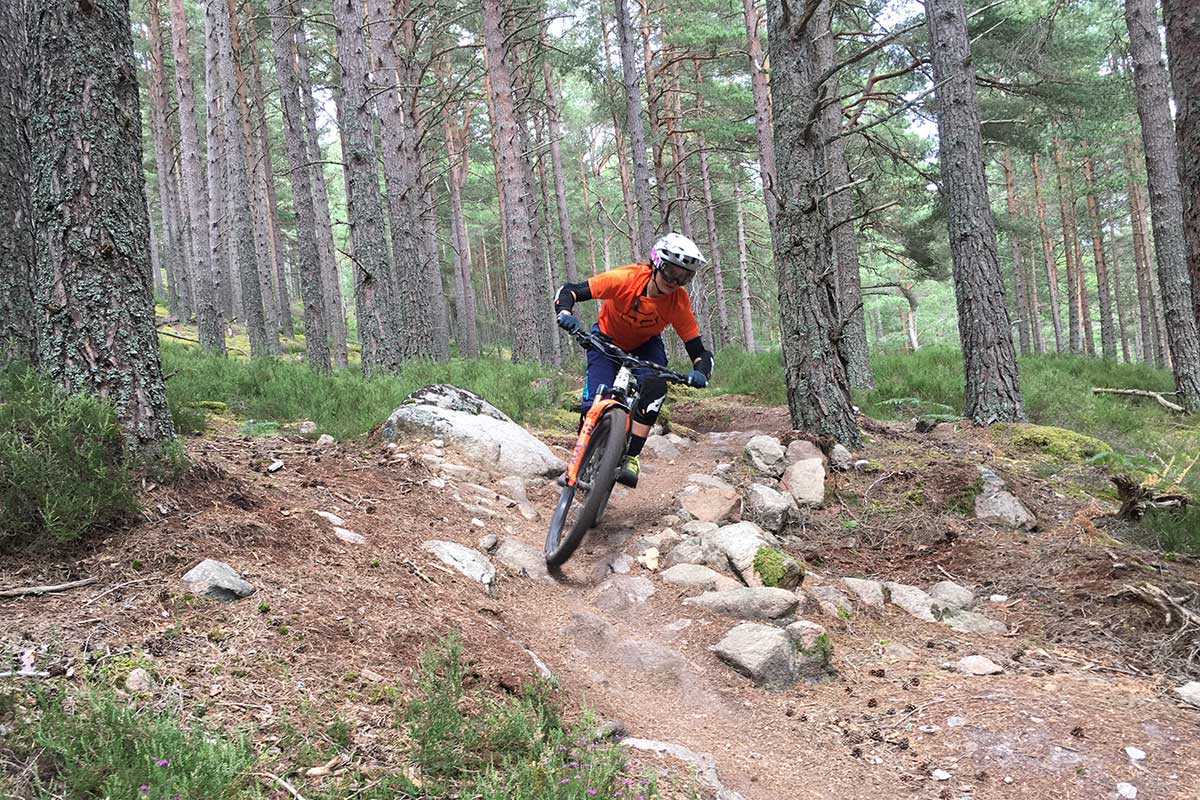
This trip up to the North of Scotland was equally as good psychological preparation as it was physical preparation. Dealing with that level of exposure isn’t something I get much practice of so it was awesome to get more experience before heading out to the Alps.
Making friends with fatigue
The trails of the Tweed Valley are short in the grand scheme of things. While they may be a decent length by UK standards, they are on a completely different (smaller) scale to those i’m going to race in the Zermatt EWS.
We took a look at the Pro Women’s results from the 2019 Zermatt EWS race – five race stages, each of which took the 2019 Overall Champion Isabeau Courdurier 7-10 minutes to complete. Chances are, each of those stages will take me 10-15 minutes, give or take.
The level of fatigue you encounter on a six minute track isn’t quite the same level of fatigue you’ll experience on a 10-15 minute track. So how have I been training for that?
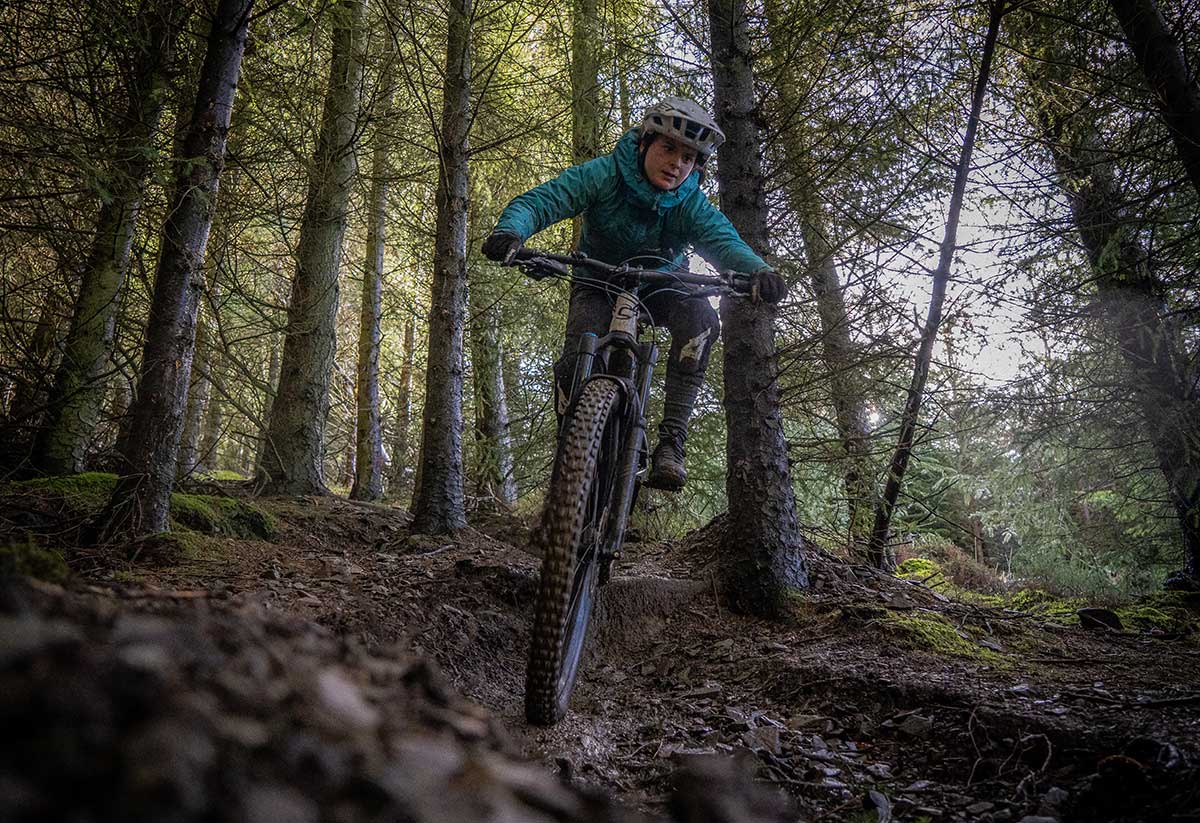
The answer: intervals. But not your ordinary intervals. When I first started training, my intervals comprised sprinting up a fire road, only to turn around and roll back down said fire road before doing it all over again.

Now, the hill rep finishes at a trail head, and I’m dropping in to a four to six minute trail at max HR. These sessions hurt. A lot. For the first 10-20 seconds of trail, you’re a complete passenger. You’re trying to recover from the effort of sprinting up a hill while tackling gnarly terrain and trying to stay on your bike.
How does it feel? The oxygen debt you put yourself into makes your muscles burn with lactic acid, and your vision may sometimes go a little blurry. Not ideal, I know. I do feel myself settling in after around 20 seconds of descending.
The fatigue actually makes you relax on the bike. You don’t brake unnecessarily as you’re doing everything you can to maintain momentum – the last thing you want to do is expend precious energy on a needless pedal stroke. Pumping comes in super handy.
Speed Strength Training
Over the last 3-4 months I’ve been seeing a physiotherapist twice per week, to deal with a lower back issue I’ve developed. Said issue stems from the fact that the muscles in my lower back are relatively weak compared to my leg muscles. It’s not an uncommon issue for cyclists to develop.
To get it fixed, and to improve my overall strength, my physiotherapist designed a strength and conditioning program for me.
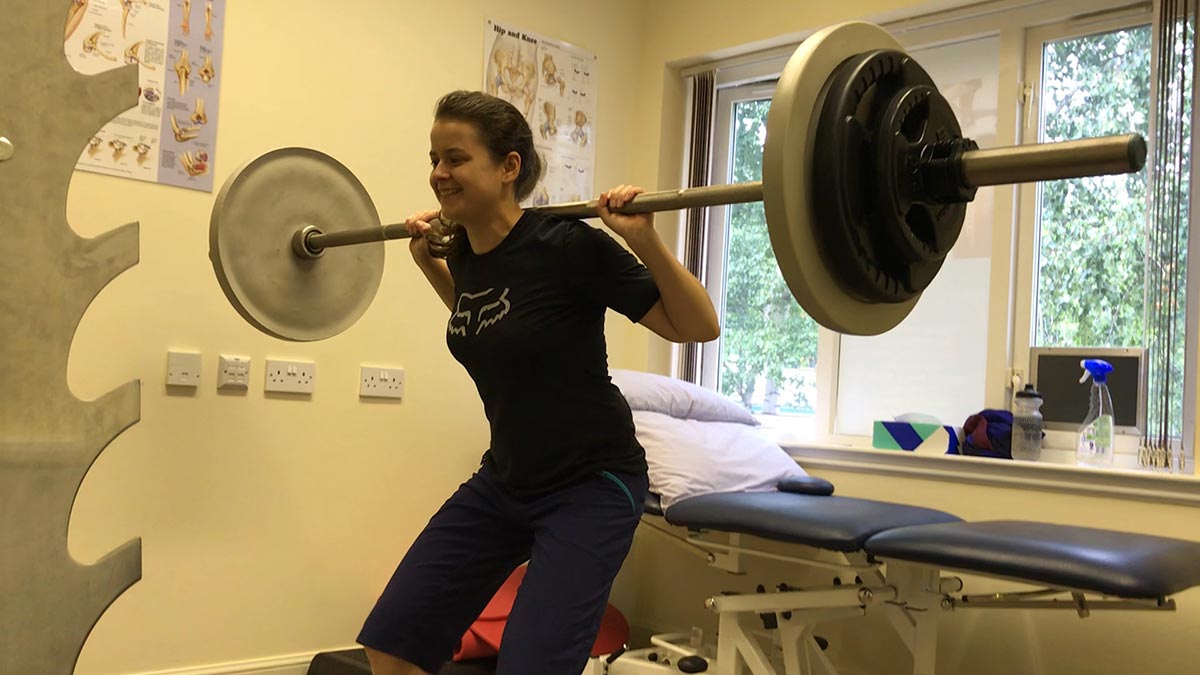
Here’s what a pure strength session looked like:
- Squats – 4 Sets of 4 Reps at 90% of MAX (80kg)
- Dead-lifts – 4 Sets of 4 reps at 90% of MAX (65kg)
- Overhead (shoulder) press – 4 Sets of 4 Reps at 90% of MAX (28kg)
As we taper down to race day, the focus of these sessions has changed from pure strength to speed strength. We’ve dropped the weight a little and increased the number and speed of repetitions. I’m now lifting weight to a beat (50-60 bpm) – I downloaded the Metronome Beats App that helps me keep timing.
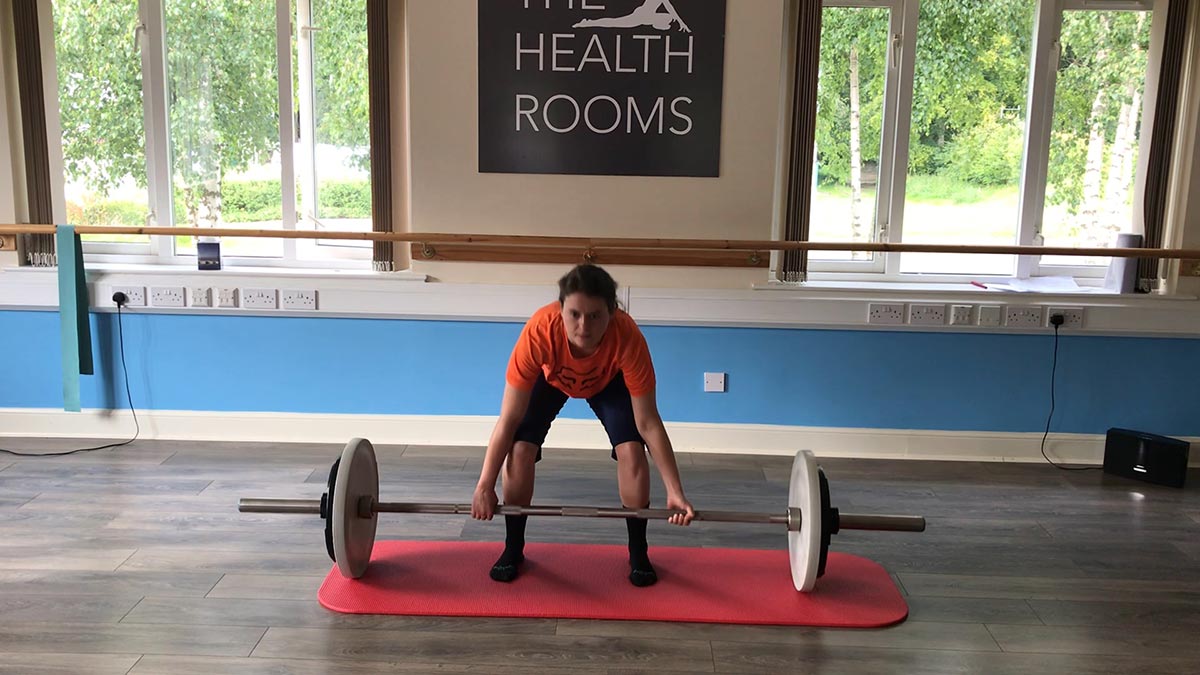
Here’s what a speed strength session looks like:
- Squats – 4 Sets of 8 Reps at 80% of MAX
- Dead-lifts – 4 Sets of 8 Reps at 80% of MAX
- Overhead (shoulder) press – 4 Sets of 8 Reps at 80% of MAX
The Four Week Taper
Throughout the off-season, training conforms to a regular build and adapt cycle running every four weeks. As we approach the big day, training is tapered down in preparation for EWS. The idea with the taper is to gradually reduce the volume of training over four weeks, while maintaining the high intensity sessions.
My coach, Professor Geraint Florida-James, says I “should be crawling up the walls come race day”, and that I should be “begging him to let me ride my bike”. This period of cooling off is meant to be crucial to making sure my body has fully recovered from and adapted to the stress of the previous months’ training blocks, and that my body is in peak physical condition for racing.
I’m writing this during week two of the four week taper, and already i’m crawling up the walls wanting to get out and ride! Hopefully it’s working!
Next Time on The Path…
It’s RACE DAY!
But first, I’m heading out to the Alps a couple of weeks prior to the race, to spend some time at altitude and allow my body to adapt to the reduced oxygen availability that comes with that. Some of the race stages at Zermatt start at 3000m+, so a bit of adaptation wouldn’t go a miss.
Zermatt is a one day race, with practice on the Saturday and racing on the Sunday. With the COVID-19 restrictions that the EWS have needed to put in place, we’ll not be able to document the racing itself. But, we do have a complete course recon and race report coming! See you in Switzerland!!!
